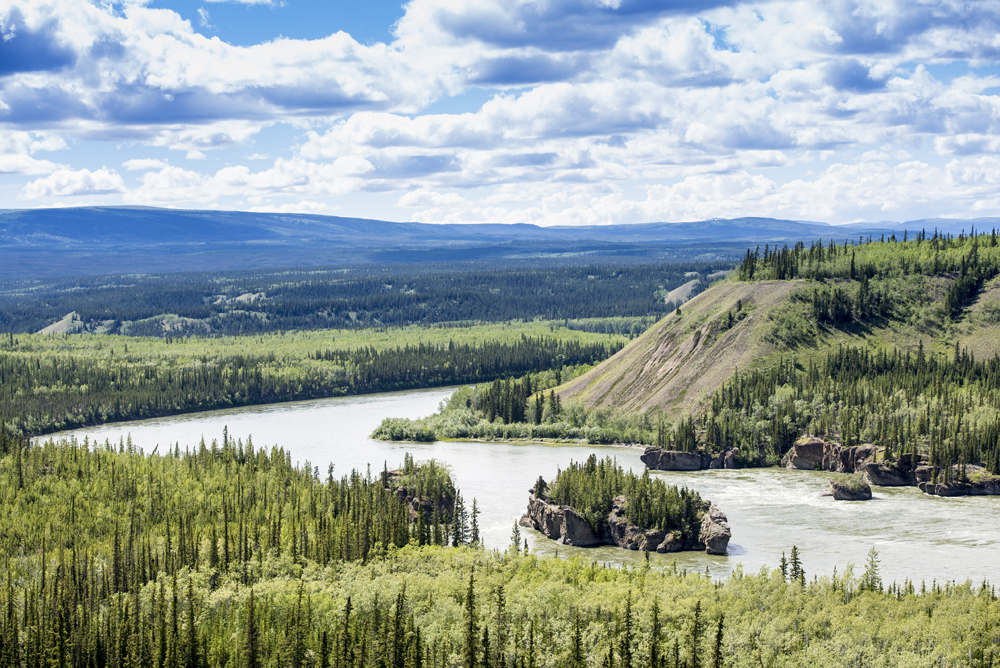Learn and explore northern environmental issues.
Experience the northern environment and examine a range of environmental issues, including land use and interpretation, resource depletion and stewardship, wilderness fragmentation and protection, biodiversity, and threats like pollution and climate change.
Consider the variety of perspectives on and the ethics of using and experiencing environments. Study the lands and write about them; see the North and think about it.
Northern Outdoor and Environmental Studies
Yukon University has made exciting changes to the way many of its courses are delivered and scheduled courses are being offered face-to-face and online.
Online courses may have weekly scheduled video-conferenced sessions, while others may run entirely in person or in a combination. See the course pages and course outlines for details. Spring courses are running online to ensure the widest accessibility.
Contact the School of Liberal Arts or a program advisor for assistance or for more information about our programs and courses or to see if NOES is the program for you.
Northern Outdoor and Environmental Studies is a multidisciplinary exploration of contemporary environmental issues and human-environment relationships, with particular emphasis on northern systems.
Drawing upon the natural and social sciences, humanities and the arts, and integrating experiential learning opportunities to bridge classroom, community and Yukon wilderness, the program critically examines a variety of environmental issues, including:
- land use and interpretation
- resource depletion and stewardship
- wilderness protection and fragmentation
- biodiversity
- pollution and contaminants
- climate change
The complex nature of environmental subject matter is addressed through ecological, socio-cultural, political, economic and philosophical inquiry.
The program is sufficiently broad to be of interest to students seeking vocational opportunities after completing their studies at Yukon University or preparing for transfer to a university degree program.
It also presents an exciting continuing education opportunity for individuals currently employed in or interested in fields such as education, environmental policy or management, recreation and tourism.
To graduate, NOES Diploma students must complete 60 credits, including:
- ENGL 100 and ENGL 101 (6 credits)
- One Yukon First Nations Core Competency course (3 credits)
- One Liberal Arts elective (3 credits)
- Two science electives (6 credits)*
- Two social-science electives or additional science electives (6 credits)
- Two Northern Studies (NOST) core courses (6 credits)
- Two Northern Environmental Studies (ENST/PHED) core courses (6 credits)
- Four Northern Studies (NOST) electives (12 credits)
- Four open electives (12 credits)
Diploma students must ensure they
- complete at least six courses (18 credits) at the 200 level or above in their program
- undertake at least 50% of the work at Yukon University
- maintain a cumulative GPA of 2.0 (C average)
NOTE ABOUT ELECTIVES
- NOST and ENST/PHED core courses and other NOST electives may be used as open electives provided all other requirements have been met.
- 060-level courses and lower will not satisfy open elective requirements.
NOTE ABOUT SCIENCE REQUIREMENTS
- As of May 2019, elective science courses no longer require labs.
- NOES Diploma students may take additional science courses (lab or lab-free courses) to meet elective requirements.
A Program Advisor can discuss program options.
Yukon University recognizes that a greater understanding and awareness of Yukon First Nations history, culture and journey towards self-determination will help to build positive relationships among all Yukon citizens. As a result, you will be required to achieve core competency in knowledge of Yukon First Nations.
For details, visit Yukon First Nations Core Competency
Any undergraduate-level Yukon University course that is part of the British Columbia Council on Admission and Transfer (BCCAT) system is eligible for dual credit. Many courses in the School of Liberal Arts are suitable for high-school students to take as dual credit courses providing any prerequisites are met.
Students have often selected ENGL 100, HIST 140, PSYC 100, PSYC 101, and SOCI 100 for dual credit, but many other first-year courses and some second-year courses are options. Beginning in Fall 2023, ENGL 101 is available.
For more information about dual credit for Yukon high-school students, see the Dual Credit program page.
Fees
Tuition for credit programs is calculated per course credit. See money matters for more information.
Some programs and courses have additional fees - see Ancillary Fees.
Student financial awards
Education is an investment in your future, your family and your community. Yukon University is pleased to support that investment by offering some of the most competitive tuition rates in the country, as well as several student financial awards to help offset your educational and living costs.
Financial assistance
There are government programs, scholarships, bursaries, awards and First Nation funding available to financially support you throughout your academic career.
See money matters for more information, or talk to our financial advising staff in the Student Services Centre. Email or call 867 668 5209 to make an appointment.
